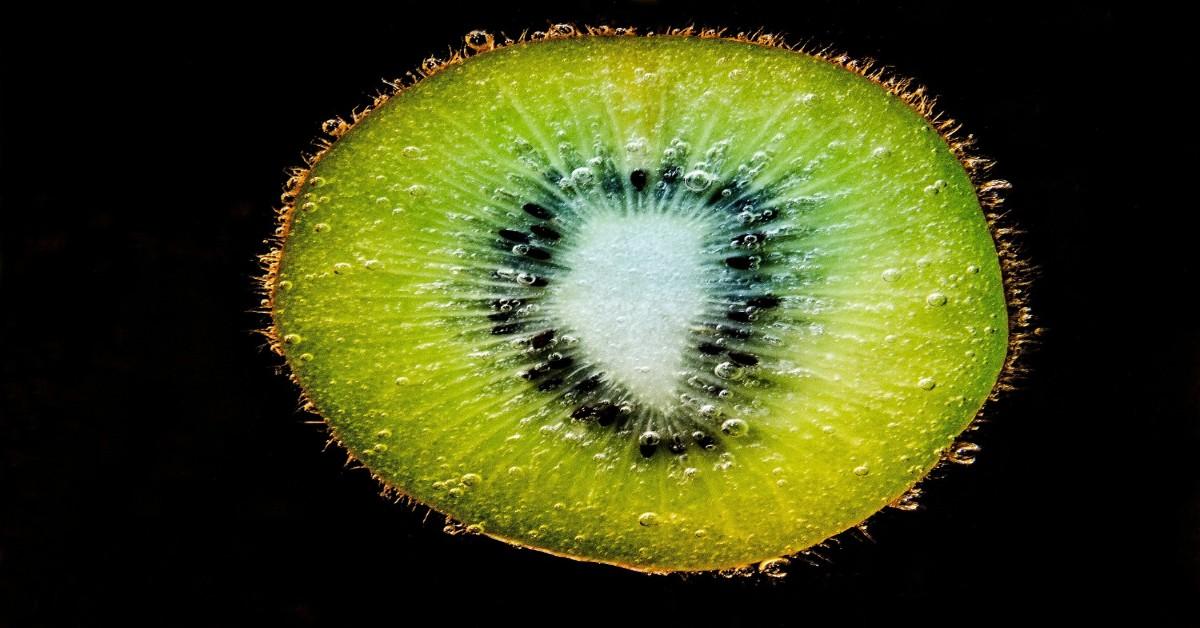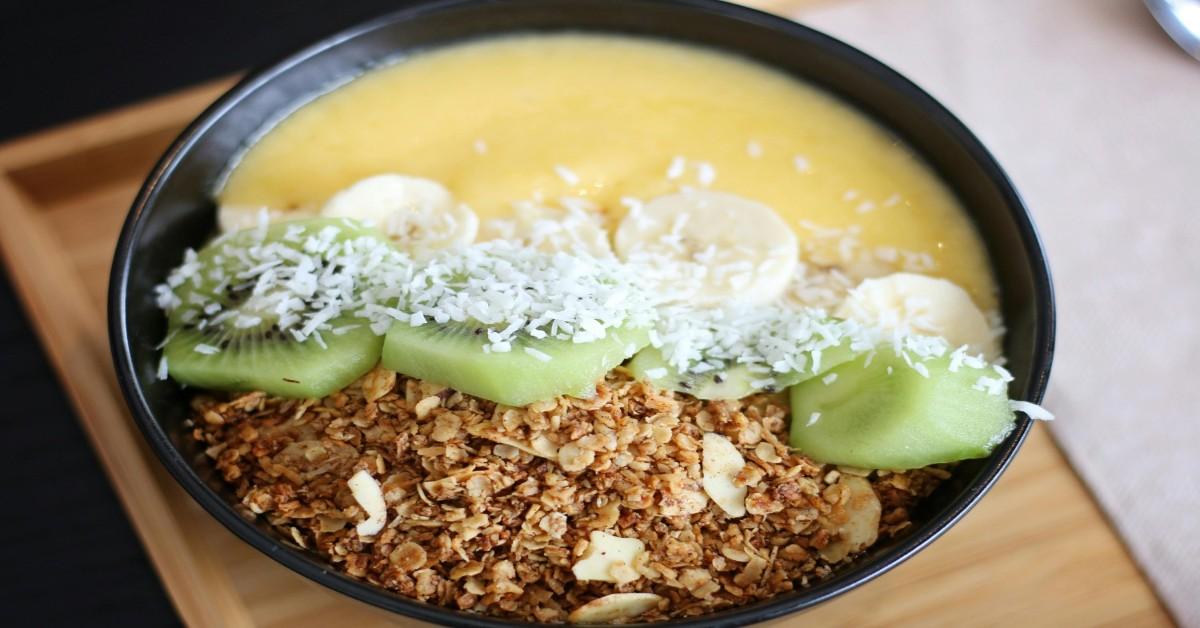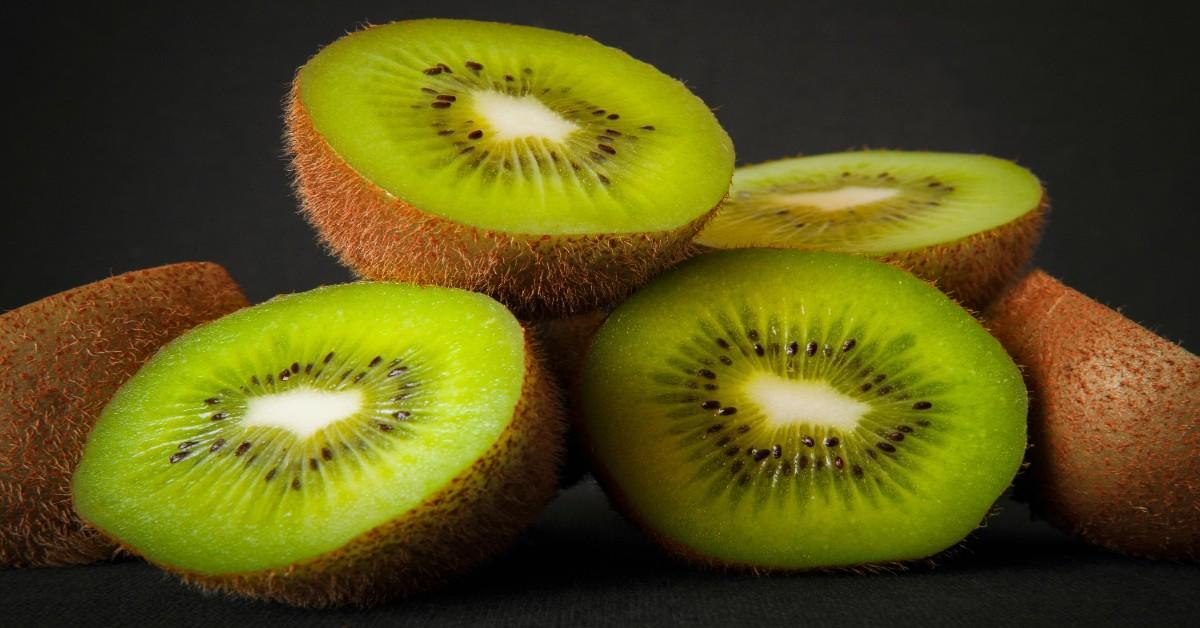Kiwi, often referred to as the “wonder fruit,” is not just a sweet, tangy treat—it’s a powerhouse of nutrition. From aiding digestion to enhancing immunity, the benefits of kiwi are boundless. Packed with essential vitamins, minerals, and antioxidants, this fruit is a must-have in your daily diet. Let’s dive deep into its benefits, nutritional profile, uses, and more.
What is Kiwi?
Kiwi, also known as kiwifruit, is a small, oval-shaped fruit with brown fuzzy skin and vibrant green or golden flesh. Its unique texture and tangy-sweet taste make it a popular choice worldwide.
Names in Different Languages
- Hindi: कीवी फल (Kiwi Phal)
- Spanish: Kiwi
- Chinese: 奇异果 (Qíyìguǒ)
- French: Kiwi
- Japanese: キウイ (Kiwi)
What makes Kiwi Unique?
Kiwi, also known as kiwifruit, is a small, brown, fuzzy fruit with vibrant green or golden flesh. Its distinct sweet-tart flavor and numerous health benefits make it popular worldwide.
Kiwi’s Nutritional Breakdown
Kiwi is a compact powerhouse of essential nutrients, perfect for a healthy diet. Here’s what 100 grams (3.5 ounces) of raw green kiwi offers:
- Calories: 64 – A low-calorie snack with high nutritional value.
- Carbs: 14 g – Provides natural sugars for quick energy.
- Fiber: 3 g – Supports digestion and promotes gut health.
- Fat: 0.44 g – Virtually fat-free, ideal for heart health.
- Protein: 1 g – A small but beneficial amount for body repair.
Vitamins and Minerals:
- Vitamin C: 83% DV – Boosts immunity and collagen production.
- Vitamin E: 9% DV – Protects cells with antioxidant power.
- Vitamin K: 34% DV – Supports blood clotting and bone health.
- Folate: 7% DV – Essential for DNA synthesis and red blood cell production.
- Copper: 15% DV – Aids iron absorption and immune function.
- Potassium: 4% DV – Regulates blood pressure and muscle function.
- Magnesium: 4% DV – Helps with energy production and bone health.
Kiwi’s rich combination of nutrients makes it an exceptional choice for overall well-being.
Different Types of Kiwi
- Green Kiwi: Known for its tangy-sweet flavor and vibrant green flesh.
- Golden Kiwi: Sweeter and smoother-skinned with yellow flesh.
- Red Kiwi: Unique for its reddish hues and mildly sweet taste.

Kiwi’s Role in Special Health Conditions
Kiwi and Dengue
The high vitamin C and platelet-boosting properties of kiwi make it an excellent fruit for recovery during dengue fever. It helps in faster healing by enhancing immunity and energy levels.
Anti-Diabetic Effects
Kiwi’s low glycemic index and high fiber content make it suitable for diabetics by stabilizing blood sugar levels.
What are the Benefits of Kiwi?
Helps Maintain Gut Health
- Rich in fiber for improved digestion and regular bowel movements.
- Contains actinidin, an enzyme that aids protein breakdown and prevents bloating.
Anti-Diabetic Properties
- Low glycemic index prevents blood sugar spikes.
- High fiber content supports better insulin sensitivity.
Aids in Weight Management
- Low-calorie and high-fiber fruit promotes satiety.
- Hydrating and nutrient-dense, making it ideal for weight control.
High in Vitamin C
- Boosts immunity and helps fight infections.
- Supports asthma management and skin health by combating free radicals.
Provides Vitamin E
- Acts as a natural antioxidant to improve skin elasticity and reduce damage.
Antioxidant Power
- Contains compounds like flavonoids and carotenoids to fight oxidative stress.
Good Source of Potassium
- Regulates blood pressure and balances electrolyte levels.
- Reduces muscle cramps and supports heart function.
Rich in Vitamin K
- Important for blood clotting and bone strength.
Excellent Source of Plant Compounds
- Packed with lutein, zeaxanthin, and beta-carotene for eye health and overall wellness.
May Benefit Heart Health
- Lowers cholesterol, improves blood circulation, and reduces the risk of clotting.
Stops Blood Clotting
- Natural anti-clotting properties improve cardiovascular health.
Promotes Good Sleep
- High serotonin content enhances sleep quality and duration.
How Much Kiwi Should You Have in a Day?
1–2 medium-sized kiwis are sufficient for most individuals to reap its health benefits.
How to eat Kiwi
Fresh Consumption
- Peel and slice kiwi for a quick snack.
- Cut it in half and scoop out the flesh with a spoon.
Smoothies and Beverages
- Blend kiwi with spinach, bananas, and yogurt for a refreshing smoothie.
- Mix kiwi with water or other fruits for a natural juice boost.
In Salads
- Add diced kiwi to fruit salads or mix it with greens and nuts for a nutritious treat.
Desserts
- Top ice cream, yogurt, or cakes with kiwi slices.
- Use it in fruit tarts, parfaits, or pavlovas for a tangy twist.
Salsas and Sauces
- Create a tangy kiwi salsa with tomatoes, onions, and cilantro.
- Prepare a sweet kiwi drizzle for desserts.

Potential Risks and Allergies
While kiwi is generally safe, some individuals may experience allergic reactions such as:
- Itchy mouth or throat
- Swollen tongue or lips
- Wheezing or trouble breathing
- Stomach pain or vomiting
If you notice these symptoms, seek medical advice.
Conclusion: The Superfood You Can’t Ignore
Kiwi is a versatile, delicious, and nutrient-packed fruit that offers a myriad of health benefits. From boosting immunity to aiding digestion and enhancing heart health, this fruit truly lives up to its superfood status. Incorporate it into your diet today and enjoy the numerous benefits it brings to your health and well-being.
FAQs
What are the health benefits of kiwi?
Kiwi is a powerhouse of nutrients. It’s high in vitamin C, which boosts immunity, and contains dietary fiber to support digestion. It also promotes heart health, regulates blood pressure due to its potassium content, and offers antioxidants that combat oxidative stress
How can kiwi improve skin health?
The vitamin C in kiwi aids in collagen production, keeping skin firm and youthful. Its antioxidants protect against damage from free radicals, helping maintain healthy, glowing skin
Can eating kiwi help with sleep?
Kiwi contains serotonin, a natural compound that can improve sleep quality and help with insomnia when consumed before bedtime
Is kiwi good for digestion?
Yes, kiwi is excellent for digestion. It contains actinidin, an enzyme that helps break down proteins, and dietary fiber, which supports regular bowel movements and gut health
How does kiwi benefit heart health?
Kiwi is rich in potassium, which helps maintain healthy blood pressure, and dietary fiber, which can reduce cholesterol levels. These benefits contribute to improved cardiovascular health
What are the potential risks of eating kiwi?
While kiwi is generally safe, some individuals may have allergies that cause symptoms like itchy throat, swollen tongue, or trouble swallowing. Overeating may also cause stomach discomfort due to its high fiber content
Can pregnant women eat kiwi?
Absolutely! Kiwi is a great source of folate, crucial for fetal development, and vitamin C, which supports iron absorption. It’s a nutritious choice during pregnancy
What nutrients are in kiwi?
Kiwi is packed with:
- Vitamin C (over 100% of daily needs per medium fruit)
- Potassium (312 mg/100g)
- Dietary fiber (3g/100g)
- Vitamins K, E, and folate
How can I include kiwi in my diet?
You can eat kiwi fresh, blend it into smoothies, mix it in salads, or use it as a topping for desserts and yogurt. Its sweet-tart flavor complements a variety of dishes
Does kiwi help with weight management?
Kiwi is low in calories, high in fiber, and nutrient-dense, making it a great snack for those looking to manage their weight effectively.
Is kiwi good for kidneys?
Kiwi can support kidney health due to its high potassium and low sodium content. However, people with kidney disease or urinary stones should avoid it because of its oxalate and potassium levels, which could exacerbate their condition
Does kiwi increase uric acid?
Kiwi is generally safe for most people, but it contains purines, which can contribute to uric acid production. Individuals with gout should limit their intake
Can you eat kiwi skin?
Yes, the skin of kiwi is edible and rich in antioxidants. However, some people may prefer peeling it due to its fuzzy texture
Is kiwi high in sugar?
No, kiwi is relatively low in sugar. A 100g serving contains only about 5g of natural sugars, making it suitable for those watching their sugar intake
Does kiwi help with cholesterol levels?
Yes, consuming kiwi regularly can improve cholesterol profiles by increasing HDL (“good” cholesterol) and lowering LDL (“bad” cholesterol) levels
Is kiwi acidic?
Kiwi is slightly acidic, so individuals with acid reflux may experience discomfort when consuming it
Can eating kiwi daily benefit your health?
Eating kiwi daily can boost overall health. It is rich in vitamins C and E, antioxidants, and fiber, which support immunity, digestion, and skin health.
Is kiwi a “hot” or “cold” food?
Kiwi is considered a “cold” food due to its cooling properties, making it a popular choice in summer
Does kiwi aid hair growth?
Kiwi’s vitamins and minerals, such as zinc, support healthy hair growth by nourishing hair follicles
What is the best time to eat kiwi?
Kiwi can be consumed at any time of the day. Eating it in the morning can enhance digestion, and at night, it may improve sleep quality due to its serotonin content
Is kiwi suitable for people with diabetes?
Yes, kiwi is considered diabetic-friendly due to its low glycemic index, which helps regulate blood sugar levels when consumed in moderation
Does kiwi help with weight management?
Kiwi is low in calories and high in fiber, making it an excellent fruit for weight management by promoting satiety and aiding digestion.

